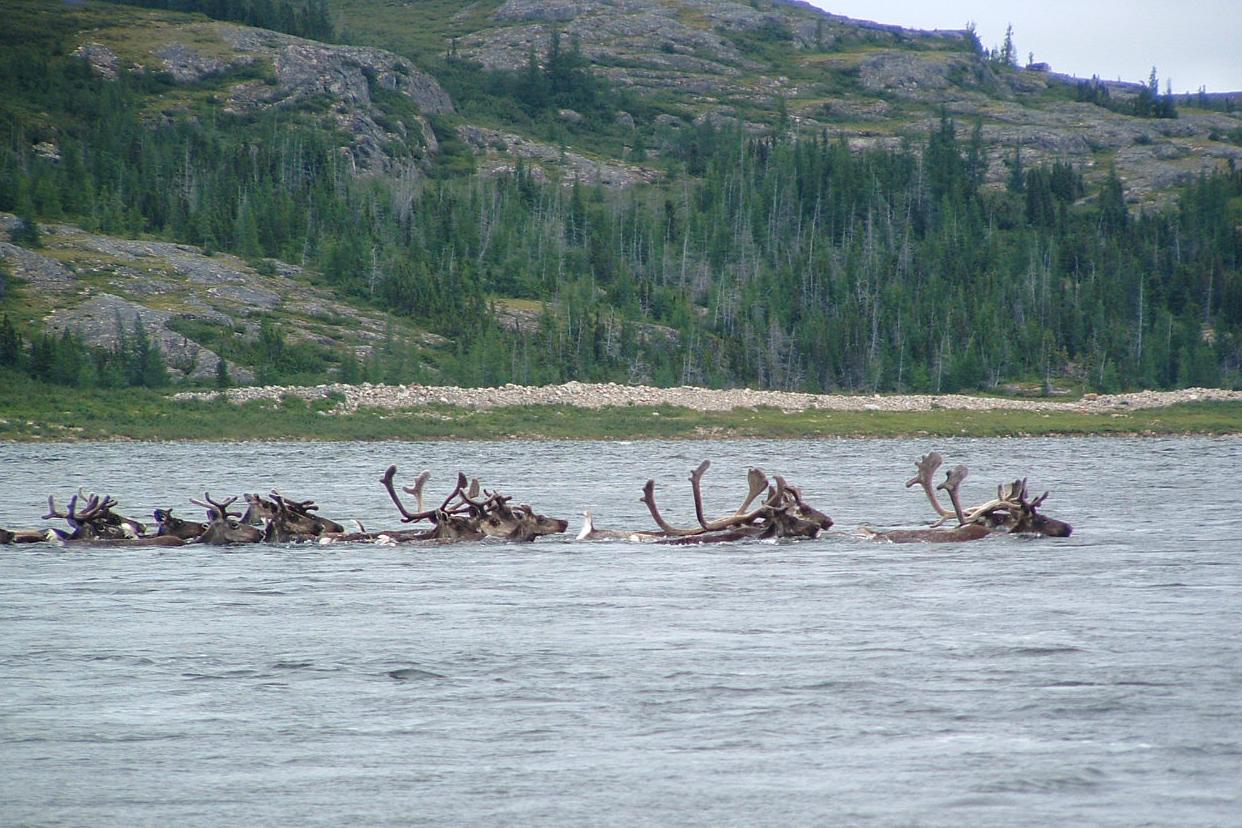Indigenous groups in Quebec, Labrador sign deal on caribou

Seven Indigenous groups from Quebec and Newfoundland-Labrador have signed a conservation agreement to help protect the two main caribou herds living in the Ungava peninsula and prioritize Indigenous harvesting.
The George River and Leaf River caribou herds have seen drastic declines in their populations over the last two decades. The George River herd has dropped from roughly 770,000 animals in the 1990s to just under 9,000 today.
That prompted the 2013 creation of the Ungava Peninsula Caribou Aboriginal Round Table, or UPCART, made up of the seven Indigenous groups that inhabit that region, including Makivik Corp. as a representative of Nunavik Inuit.
On Oct. 17 in Montreal, UPCART members signed what they called a “historic” agreement, one they say is unique for its cooperative wildlife management.
Its goal: to monitor the population across the two jurisdictions and adapt to its highs and low, while giving harvesting priority to Indigenous communities.
“Ultimately, we are looking at securing subsistence harvesting in perpetuity,” said UPCART’s co-chair Adamie Delisle-Alaku, who is also vice president of resource development at Makivik.
“We need to address the decline in our own backyard. All stakeholders must successfully contribute so that we ensure the survival of caribou will continue for generations to come.”
The agreement is called A Long Time Ago in the Future: Caribou and the People of Ungava. In addition to Nunavik Inuit, it was signed by Quebec Cree, Innu and Naskapi as well as Nunatsiavut Inuit, the NunatuKuvut Community Council and the Innu of Labrador.
While the seven groups signed off on the new agreement, the action plans to support it are still being developed and implemented, in five parts.
The Indigenous Sharing Agreement section will set the parameters for monitoring the harvest and determining how a limited harvest is shared among Indigenous groups in times of scarcity.
“Today the George River herd can no longer meet the basic needs of all our people. We are working hard to help the herds recover from the decline,” Delisle-Alaku said.
“The UPCART plan in itself doesn’t restrict harvest but requires all signatories to take measures that will ensure harvests are sustainable.”
There is not currently any formal monitoring of harvest levels in Indigenous regions of Quebec or neighbouring Labrador, but Delisle-Alaku said the group is committed to approach this with its own cultural needs in mind, by establishing and documenting food security needs.
After groups sounded the alarm last year over the plunging Leaf River herd population—whose numbers went from about 430,000 in 2011 to 190,000 five years later—the Quebec government finally agreed to close the sport hunt in the region, although not until 2018.
In that sense, the Indigenous harvest is still not being prioritized, Delisle-Alaku said.
Part of the new plan also addresses concerns about the potential impact industrial development and pollutants could be having on the health of caribou and their habitat.
That includes identifying critical habitat and the creation of an area called Caribou House, located in the Torngat Mountains region to the east of Ungava Bay, which has long been considered a refuge for the George River herd during times of scarcity.
The texts of the full agreement and plan should be released next week, Makivik said.